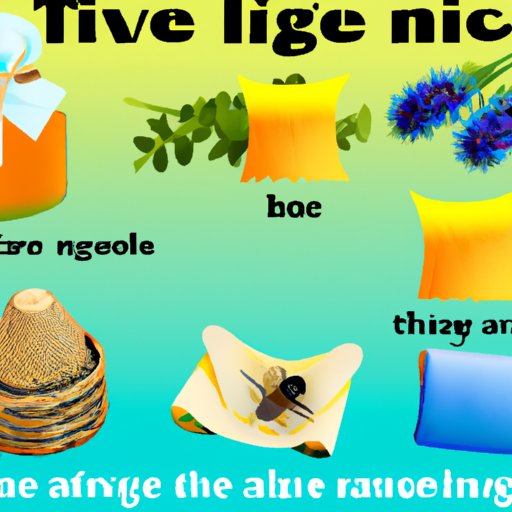Introduction
Hives, also known as urticaria, is a common skin condition characterized by itchy, raised welts on the skin. These welts can be in different sizes and shapes, and they may appear anywhere on the body. Hives usually last for a few hours before fading away and can be caused by various factors, such as allergic reactions, exposure to certain chemicals, and infections.
Treatment Options
There are several ways to treat hives at home. Here are some of the most effective methods:
OTC Antihistamines
OTC antihistamines are one of the most common treatments for hives. These medications block the body’s histamine response, which helps reduce the itching and swelling associated with hives. Common OTC antihistamines include diphenhydramine (Benadryl), loratadine (Claritin), and cetirizine (Zyrtec).
Cold Compresses or Ice Packs
Applying a cold compress or an ice pack to the affected area can help reduce itching and swelling. It is important to wrap the compress or ice pack in a towel before applying it to the skin to avoid further irritation.
Loose-Fitting Clothing
Wearing loose-fitting clothing can help reduce the itching and discomfort associated with hives. Tight-fitting clothes can aggravate the skin, so it is important to wear clothes that allow the skin to breathe.
Avoidance of Potential Triggers
Identifying and avoiding potential triggers of hives can help prevent future outbreaks. Common triggers include certain foods, insect stings, and medications. If you suspect that a certain food or medication is causing your hives, talk to your doctor about possible alternatives.
Natural Topical Treatments
Using natural topical treatments can also help reduce the symptoms of hives. Aloe vera gel is a popular remedy for hives, as it has anti-inflammatory properties that can help reduce itching and swelling. Other natural treatments include chamomile tea and oatmeal baths.
Conclusion
Treating hives at home can be done effectively with the right steps. OTC antihistamines, cold compresses or ice packs, loose-fitting clothing, avoidance of potential triggers, and natural topical treatments can all help reduce the itching and swelling associated with hives. It is important to remember to take precautions when treating hives and to consult a doctor if the condition does not improve.


